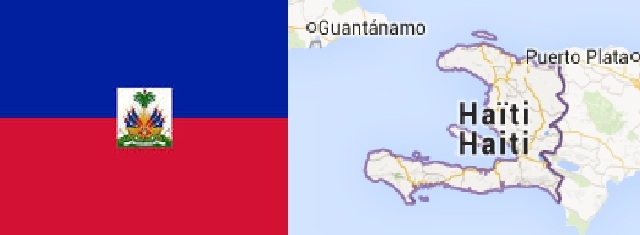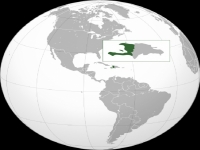Lifestyle
HAITI TRAGEDY - EARTHQUAKE, CHOLERA, EXTREME POVERTY AND STORM ERIKA
POLITICAL PROTESTS SIGNAL FRUSTRATION

(Source: Wikipedia)
A large international movement of solidarity took place quickly after the earthquake and GNO's rapidly set up an emergency response fund for Haïti. Activated emergency response plans for water sanitation and hygiene, food and relief items, shelter provision, sexual and reproductive health and support for schools. That evolved into long-term strategies to help rebuilt Haïti's social and physical infrastructure while continuing to support families immediately after disasters.
What is remarkable in Haïti is that it is not sufficient to fix the symptoms of poverty, we need to address the underlying causes, in particular the unequal power relations between men and women, and the inability for women to fully participate in the development of their household, community, and country. Haïti continues to be one of the most vulnerable countries to climate change in the world. It is essential to integrate emergency preparedness and long term development plans.
Disasters are not exceptional events but part of the context in which people live and the participation of the affected communities is very important. Long term development programs that build the resilience of the most vulnerable families. To build people's capacities to overcome shocks. To put in place and strengthen Haïtian institutional capacity to support vulnerable families facing major stresses.
On January 12, 2010, Haïti was struck by an earthquake devastating its capital Port-au-Prince and surrounding areas. The earthquake affected over two million Haïtians, claimed over 200,000 lives, and left 300,000 injured. The earthquake also indirectly affected many areas far from the epicenter. The scale and impact of the disaster was unprecedented and devastating for the already impovrished Caribbean nation, which before the disaster ranked 145 out of 169 countries on the UN's Human Development Index (the lowest ranking in the western hemisphere). The magnitude of the destruction caused by the earthquake resulted in a strong outpouring of generosity from the public worldwide.
Emergency relief assistance addressed immediate needs, rebuilding communities requires complex interventions that link relief, rehabilitation, and development. 52% of Haïtians live in urban centers and 85% of those live in informal neighborhoods. Homes in these neighborhoods are inadequate, overcrowded, lack basic services, and are exposed to risks. These informal settlements and slums on the hillside neighborhood were the hardest hit by the earthquake.
Delays and sporadic violence troubled Haïtian legislative elections in August, 9, 2015, as the country voted for its next parliament after a years-long wait. The elections had been postponed for nearly four years due to a political showdown between Haïti's executive and opposition, and they had been billed as a crucial test of the country's electoral system ahead of a presidential vote in late october. The first round of Haïti's presidential election and the second round of local elections are set for 25 october, 2015.
Ruby Bird Haiti Earthquake Cholera Poverty Storm Erika Protest Signal Frustration International Movement Solidarity Gno Emergency Fund Water Sanitation Hygiene Infrastructure Disasters
Liability for this article lies with the author, who also holds the copyright. Editorial content from USPA may be quoted on other websites as long as the quote comprises no more than 5% of the entire text, is marked as such and the source is named (via hyperlink).






